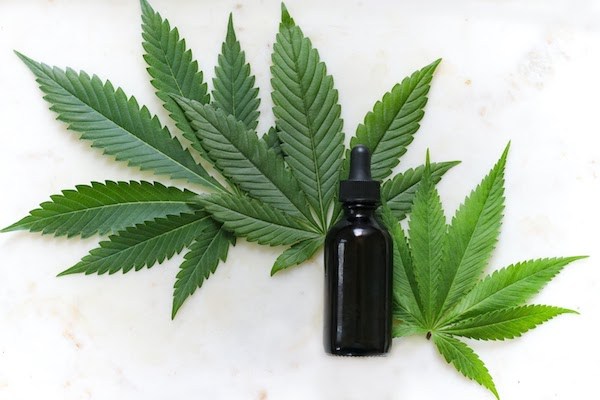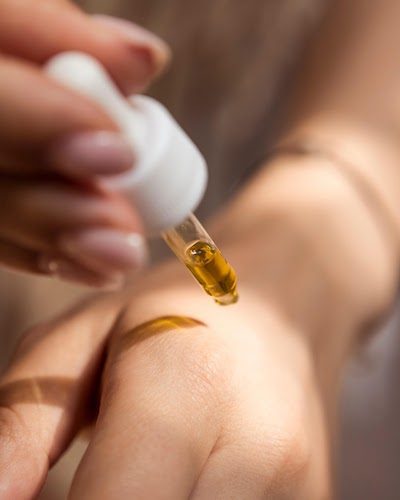The Truth About CBN – Cannabinol
It’s no secret that our beloved herb holds over 100 different cannabinoids in trace amounts. Give those traces to a scientist and interesting things will happen. You might be surprised to learn that cannabinol (CBN) is the first phytocannabinoid ever to be isolated back in 1896.
It was rediscovered in 1940 and erroneously classified as the primary psychoactive component of cannabis. But twenty-four years later, in 1964, Yechiel Gaoni and Raphael Mechoulam isolated THC and realized that its aged counterpart, CBN (cannabinol), had no psychoactive effects. This mildly intoxicating compound was more than just a useless byproduct of stale weed; it was a valuable cannabinoid that held many benefits.
What Exactly Is Cannabinol (CBN)?
When the cannabinoid called tetrahydrocannabinol (THC) is heated or ages, it becomes cannabinol. CBN is produced when THC is oxidized and the more oxygen that cannabis is exposed to over time, the more CBN that it will produce.
The decomposition and oxidation of THC creates a chemical change, transforming THC into CBN in a process that takes place slowly over time. As the distinctive properties of THC disappear, we are left with a constituent that offers a multitude of potential benefits of its own.

How CBN Is Made: What Are CBN’s Origins?
CBN typically doesn’t exist in appreciable quantities in fresh cannabis buds. The magic begins when the buds are removed. Most dried marijuana has 1% or less of CBN at first, but as it is exposed to oxygen, that amount increases. As cannabis ages, its CBN content increases, making older cannabis much higher in this cannabinoid than fresh cannabis.
A United Nations study suggests that within four years the potency of THC is reduced by 50%, indicating that this time period would allow a substantial transformation of THC to CBN. Some say that it only takes a few weeks exposed to the elements for CBN to gain a viable presence in someone’s stash.
The quantity of CBN in most plant material is trace amounts. It isn’t so small that you won’t feel the difference when you smoke it, but scientists rarely waste their time extracting it. Smoking stale weed isn’t exactly a sought after practice either. Aging marijuana isn’t comparable to wine or cheese, and it’s certainly not as delicious. That’s why most companies don’t do it.
Most CBN products aren’t actually harvested or aged at all. They never grew from the earth or sat around for years in a barrel. Since naturally produced CBN is on a tiny scale, it isn’t practical for pharmaceutical use. Like CBD, CBN products use biosynthesis or chemical synthesis to reproduce the cannabinoid in a lab where it can be mass produced. These products are all over the market, but most do not contain only the CBN cannabinoid. In order to understand why, you must know how CBN works.

Photo by Kimzy Nanney on Unsplash
What Does CBN Do? Benefits of CBN
Unlike THC, CBN will not create that same experience of intoxication. So, what is CBN good for? Research into the CBN cannabinoid suggests that it may have several potential therapeutic benefits.
As a Sedative
As a sedative, CBN is a team player, not a loner. Alone, the cannabinoid is lazy; it does nothing. In this study, they found that CBN needs to partner up to get you snoozing and it’s main sidekick is THC. Together, they become a dynamic duo that packs a sedating punch, making THC on its own look wimpy in comparison. If you aren’t a fan of psychoactive THC, you’re in luck. With CBD in the mix, CBN is also a winner that has been drawing the attention of medical research. Not only is it just as effective, if not more than most sedatives on the market, it also has great potential as a powerful anti-convulsive.
As a Painkiller
This study discovered that CBN releases neuropeptides from sensory nerves to relieve pain. Unlike its fellow cannabinoids, cannabinol does not work off of CB1 and CB2 receptors. When paired with others that do, the combined effect can be dramatic. The result of cannabis’s pain relief is not only analgesic but anti-inflammatory. It reaches the source of the pain and works to reduce the inflammation that causes it.
As an Appetite Stimulant
Some people like to lose weight and eat less. The CBN cannabinoid is not for those people. Just like its predecessor THC, CBN has demonstrated the ability to whet the appetite well. A study in 2012 conducted an experiment with lab mice to prove this theory. With their research, they determined that CBD reduced hunger while CBN increased it substantially.
As a Treatment for Glaucoma
In a study done with both rats and cats, researchers found that chronic topical application of CBN made a considerable difference in animals with glaucoma. Their ocular tension lessened within the first dose and was significantly reduced after 9 days of consistent use.
As a Neuroprotectant
Research also indicates that CBN may have neuroprotective properties. In one 2005 study, researchers found that mice suffering from amyotrophic lateral sclerosis (ALS) benefited from CBN. They noted that CBN was able to significantly delay disease onset, seemingly offering a degree of protection to the mice. Furthermore, a 2022 study similarly found that the CBN cannabinoid displayed neuroprotective properties in protecting nerve cells from oxidative damage and eventual cell death–two major contributors to age-related neurodegenerative disorders.
As an Antibacterial Agent
Similarly to other cannabinoids, CBN may have potential as an antibacterial agent. A 2008 study that tested several different cannabinoids, including CBN, found that they demonstrated “potent activity” in fighting a variety of MRSA (methicillin-resistant Staphylococcus aureus) strains of current clinical relevance. This has led some researchers to suggest that cannabinoids like CBN may present an exciting opportunity for the development of new antibiotics.
While studies indicate that there are many potential CBN benefits, it’s important to note that research in humans is lacking. Much more research is required to determine to what extent these CBN benefits may also help us.
Luckily, as cannabis continues to go mainstream and enjoy legal status in more places, we can expect research into cannabinoids like CBN to come down the pipeline more quickly and to soon give us more clarity on the million dollar question–what is CBN good for?
CBN Side Effects
Like other cannabinoids, CBN has side effects that you should always be mindful of when ingesting it. The two things to be primarily watchful of is feeling overly sedated and the possibility of failing a drug test.
Since research indicates that CBN may be sedating when combined with THC and/or CBD, you should be careful taking it during the day or during times when you need to be especially alert, like when driving.
Additionally, research also suggests that ingesting CBN may lead to a failed drug test, even if no THC is ingested alongside it. One study found that 2 commercial drug tests generated positive results in the presence of CBN, due to cross-reactivity.
The Future of CBN
As research continues into the potential benefits of CBN, we continue to realize just how valuable cannabis is. Yet, there are so many questions still left unanswered. Our understanding of cannabinoids only scrapes the surface!
Gradually, we will learn more about the ways it can assist us on our quest for good health and Medithrive will deliver that news to you. This special component of aged cannabis proves that good things really do come to those who wait.
Shop CBN products at our San Francisco Dispensary


